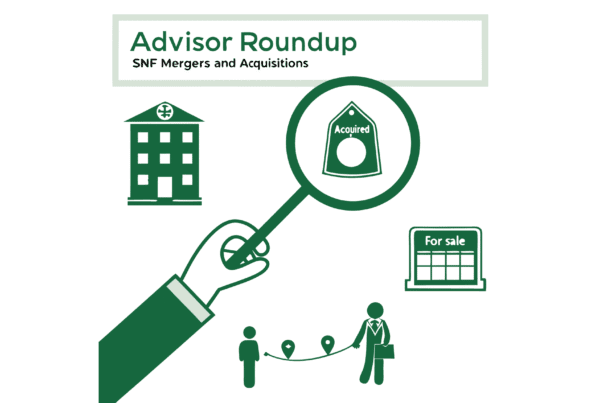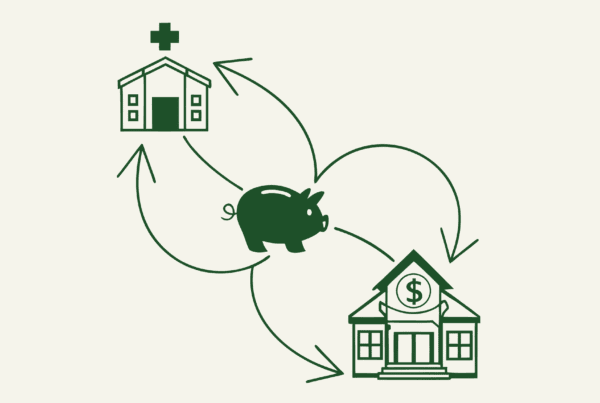The market for Occupational Therapy practices is strong, creating a significant opportunity for owners in the Orlando area. If you are considering the next chapter for your career and your practice, understanding how to navigate the sale process is the first step. This guide provides a look at the Orlando market, key factors for a successful sale, and what you can expect along the way. Your goal is to secure your legacy and maximize your financial outcome.
Market Overview
The timing for selling a healthcare practice is a major factor in its final value. Right now, the market dynamics for occupational therapy look very positive, both nationally and right here in Orlando.
A Growing National Tide
The entire U.S. occupational therapy sector is projected to grow. This trend catches the attention of buyers, from private practice owners looking to expand to larger investment groups. They are actively seeking well-run practices to acquire. This national interest means more potential buyers are looking at markets like Orlando.
The Orlando Landscape
Orlando is a robust healthcare hub. With over 360 licensed Occupational Therapists in the city, there is a strong professional community and a clear demand for services. High demand in Florida for OT services, driven by population growth and diverse patient needs, makes an established Orlando practice an attractive asset for buyers seeking a foothold in a thriving region.
Key Considerations
A strong market is a great starting point. The next step is making sure your practice is positioned to attract the best offers. Buyers will look past the surface and evaluate the core strengths of your business. You should focus on a few key areas well before you plan to sell.
-
Florida Regulatory Compliance. Buyers will perform due diligence on your practice’s adherence to all state and federal regulations. Having your documentation, licenses, and compliance protocols in perfect order is not just good practice. It is a major factor in building buyer confidence.
-
Your Team and Operations. Is your practice dependent on you alone, or do you have a qualified team of therapists and support staff? A practice that can operate smoothly with an associate-driven model is often more valuable than one reliant on a single owner.
-
The Growth Story. Buyers don’t just purchase your current cash flow. They buy future potential. Be prepared to show them a clear path to growth. This could mean expanding services, reaching new patient demographics, or improving marketing.
Market Activity
The demand in Central Florida has attracted different kinds of buyers, each with unique goals. Understanding who they are can help you decide on the best path for your practice and legacy. While online listings show general activity, the most serious buyers often work through specialized advisors to find practices that fit their specific criteria. Your practice might be a fit for several types of buyers.
| Buyer Type | What They Typically Look For |
|---|---|
| Another Practice Owner | A turnkey operation to expand their local footprint and patient list. |
| A Regional Therapy Group | A strategic location and efficient operations to “tuck in” to their existing network. |
| A Private Equity Platform | Strong, consistent earnings (EBITDA), a scalable model, and a solid management team. |
Matching your practice to the right buyer is one of the most important parts of the process. It determines not only the price but also the future for your staff and patients. A structured, confidential process ensures you connect with the right potential partners, not just the first one to show interest.
Sale Process
Selling your practice is a structured process that goes far beyond just finding a buyer. Each stage has its own purpose and requires careful attention to detail to protect your interests and maximize value. When managed correctly, the process unfolds in a logical sequence.
- Preparation and Valuation. This is the foundational stage where we help you organize your financials, identify strengths, and determine a realistic, market-based valuation.
- Confidential Marketing. Your practice is presented to a curated list of qualified buyers without revealing its identity, protecting your staff and patients from premature disruption.
- Negotiation and Offers. We field interest, manage negotiations, and help you compare Letters of Intent (LOI) to select the offer that best aligns with your financial and personal goals.
- Due Diligence. This is an intensive review where the buyer verifies all financial, operational, and legal aspects of your practice. This is where many deals fail without proper preparation.
- Closing and Transition. Once due diligence is complete, final legal documents are signed, and a transition plan is executed to ensure a smooth handover to the new owner.
Valuation
Understanding what your Occupational Therapy practice is worth is one of the most critical steps. Many owners mistakenly believe it is a simple percentage of revenue or that their accountant’s book value is the sale price. The real market value is determined by what a sophisticated buyer is willing to pay.
More Than a Formula
A true valuation is not just about numbers. It is about telling the story behind the numbers. It considers your practice’s risks, its growth potential, and its position in the Orlando market. Buyers don’t just buy a spreadsheet. They buy a future revenue stream.
The Core Calculation
The industry standard for valuation is a formula: Adjusted EBITDA x Multiple.
EBITDA stands for Earnings Before Interest, Taxes, Depreciation, and Amortization. It is a measure of cash flow. We then “adjust” it by adding back one-time or personal expenses (like a vehicle lease) and normalizing the owner’s salary to the market rate. This reveals the practice’s true profitability.
What Drives Your Multiple
The multiple is where the story comes in. A practice that relies heavily on its owner might receive a lower multiple. A multi-provider practice with a diverse payer mix and clear growth opportunities in a market like Orlando will command a much higher one.
Post-Sale Considerations
The day you sign the closing papers is a beginning, not an end. A successful transition requires planning for what comes next, both for the practice and for you personally. Thinking through these elements beforehand is a hallmark of a well-executed exit strategy.
-
Your Team’s Future. A key concern for most owners is what will happen to their loyal staff. A good transition plan, negotiated as part of the deal, ensures your team is secure and motivated under new ownership. This protects the legacy you built.
-
Your Personal Transition. Will you stay on for a period? Retire completely? Start something new? Defining your role after the sale, if any, is a critical part of the negotiation that impacts your quality of life.
-
Protecting Your Proceeds. The structure of your sale has major tax implications. The difference between a well-structured deal and a poorly structured one can mean hundreds of thousands of dollars in your pocket. Planning for tax efficiency from the start is not an option. It is a necessity.
Navigating these final steps ensures the rewards of your hard work are fully realized.
Frequently Asked Questions
What is the current market outlook for selling an Occupational Therapy practice in Orlando, FL?
The market for Occupational Therapy practices in Orlando is strong due to national growth trends in the sector and a robust local healthcare environment with over 360 licensed therapists. This creates high demand and attracts various buyers including private practice owners, regional groups, and private equity platforms.
What are the key factors that can increase the value of my Occupational Therapy practice before selling?
To maximize your practice’s value, ensure Florida regulatory compliance is up to date, maintain a qualified team to operate the practice without sole dependence on the owner, and demonstrate clear growth potential through expanding services or reaching new patient demographics.
Who are the typical buyers interested in Occupational Therapy practices in Orlando?
Typical buyers include other practice owners looking to expand, regional therapy groups seeking strategic locations to add to their network, and private equity platforms interested in practices with strong consistent earnings, scalable models, and solid management teams.
What does the sales process for an Occupational Therapy practice involve?
The process includes preparation and valuation, confidential marketing to qualified buyers, negotiation and comparison of offers, thorough due diligence to verify all aspects of the practice, and finally closing the deal with a transition plan to ensure continuity.
How is the value of my Occupational Therapy practice determined?
Valuation is based on Adjusted EBITDA multiplied by a market multiple. Adjusted EBITDA accounts for true profitability by factoring in cash flow and removing one-time or personal expenses. The multiple depends on factors like owner dependency, practice size, payer diversity, and growth opportunities in the Orlando market.



